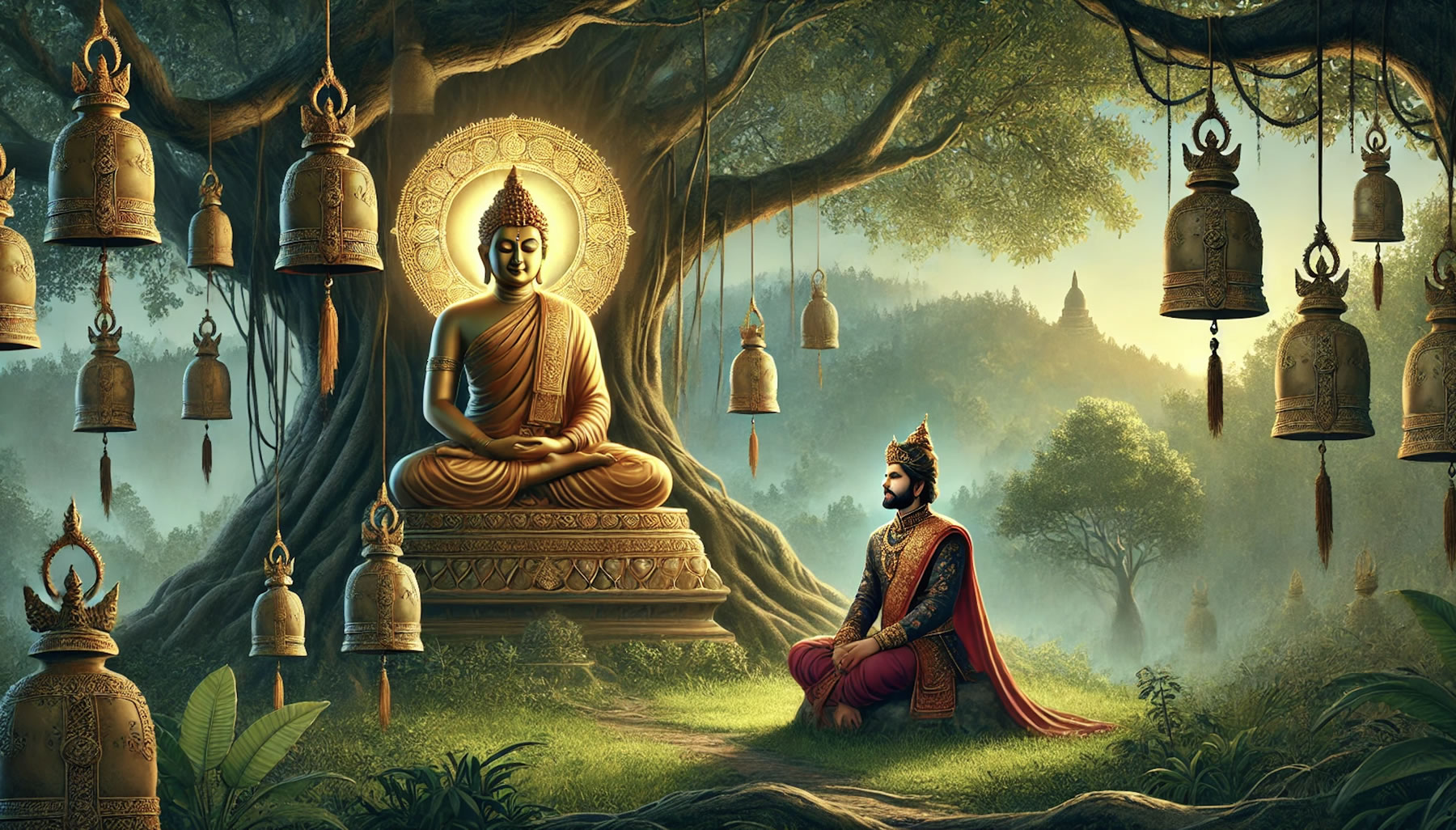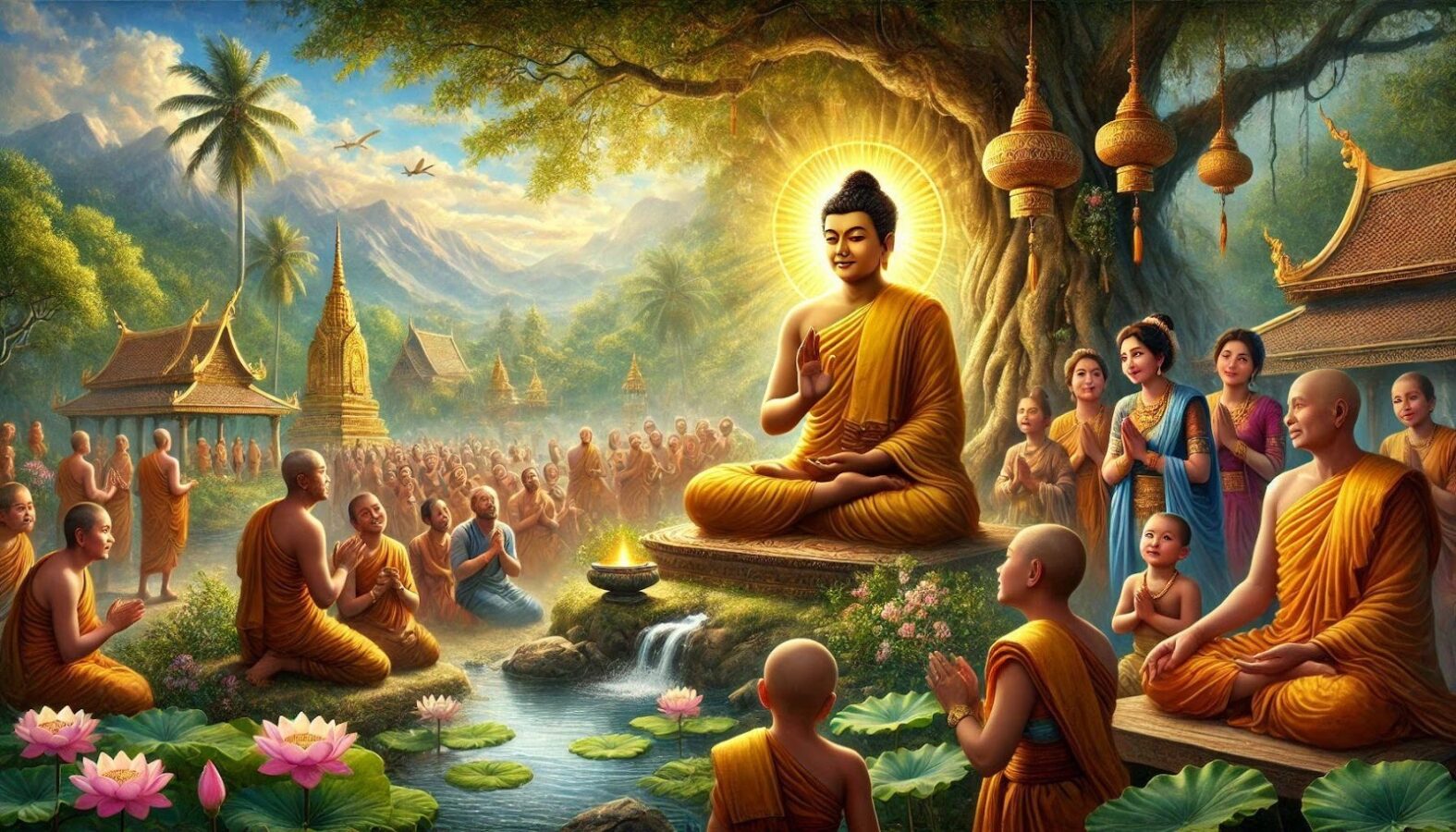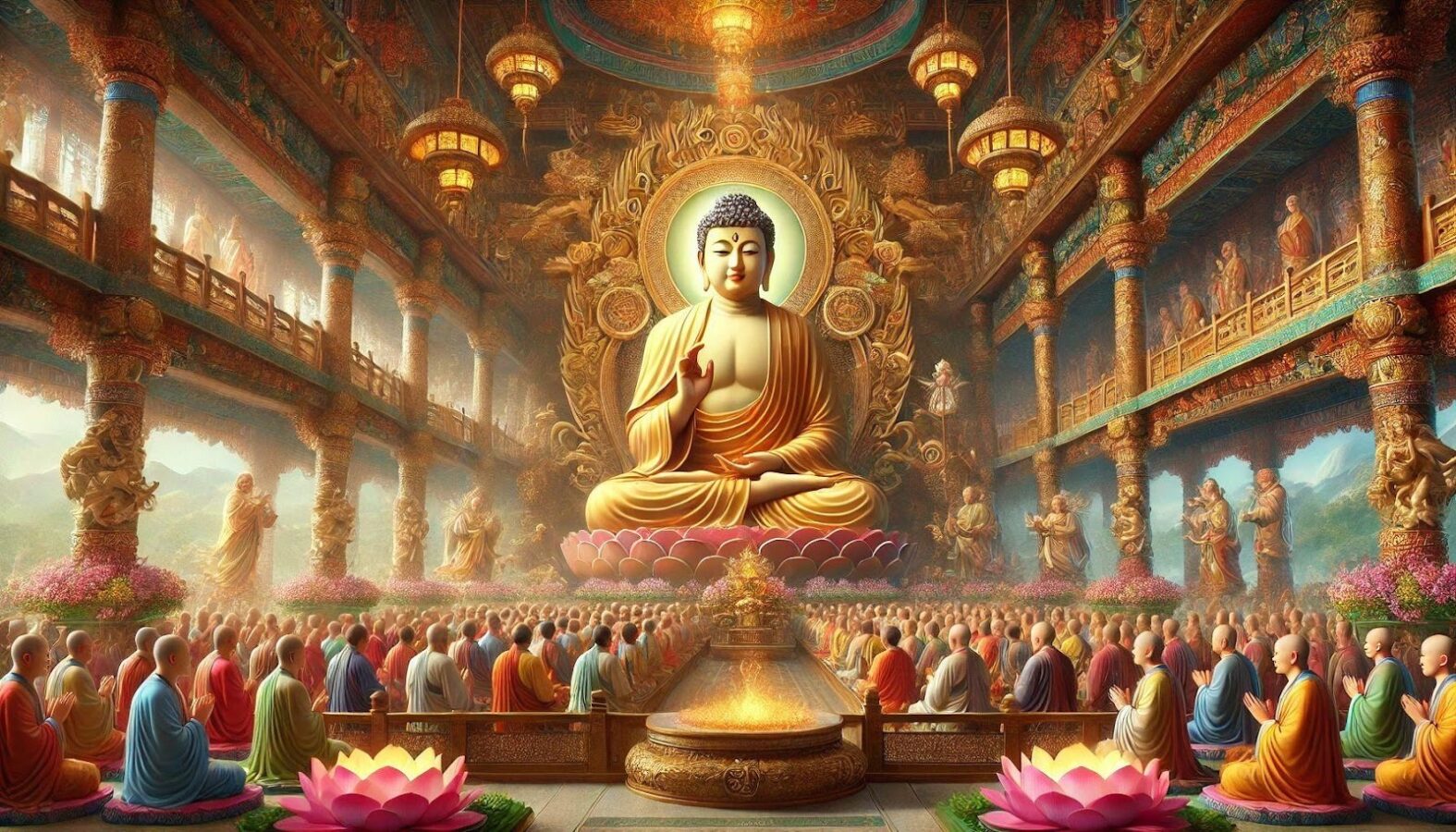
Date: 04/27/2024 04/28/2024
Location: Star Lake Meditation Center
Teacher: Otto Huang
Dharma Talk
The Sorrow of King Vidudabha After Losing His Wife
The Buddha once taught the monks that every person, including women and men, whether laypeople or monastics, should constantly remind themselves of five things:
I will grow old; I cannot avoid aging.
I will become ill; I cannot avoid illness.
I will die; I cannot avoid death.
All that I own will one day leave me.
I will have to bear the consequences of my bad actions.
This teaching serves to caution those who are young, strong, and healthy, who possess things, and who are complacent in their wrongdoing. It helps to prevent them from indulging in evil and guides them on the path of learning and transcendence.
In the eighth year after King Ajatashatru of Magadha ascended to the throne, the Buddha entered Nirvana.
King Vidudabha of Magadha dearly loved his first wife, Queen Bhadda.
One day, she passed away, and the sad news plunged King Vidudabha into deep grief. He spent his days without eating or drinking, neglecting the affairs of state, and remained disheveled and distressed beside the body of his deceased wife. He ordered his trusted officer Piaka to preserve her body in an oil vat to prevent decay, so he could visit her anytime.
Piaka commissioned a large iron vat for this purpose, following the King’s instructions, but he realized that this was not a solution. He thought it necessary to find a close Samana or Brahmin to help the King remove the arrow of grief from his heart.
At that time, the venerable Narada was traveling through the capital city of Magadha and was staying in a bamboo grove belonging to an elder. Venerable Narada, a great Arahant known for his vast knowledge, eloquence, and skill in teaching, was deeply respected by the locals.
Therefore, Piaka reported to King Vidudabha and suggested that the King should meet with Venerable Narada. King Vidudabha agreed and sent Piaka to arrange a meeting, reflecting the reverence that rulers had for spiritual practitioners.
Venerable Narada agreed to meet and was willing to accept King Vidudabha’s visit. When King Vidudabha and his retinue arrived at the bamboo grove, they dismounted and walked inside to meet Narada. After exchanging greetings and respects, Venerable Narada spoke:
“Great King! Do not grieve for things as impermanent and insubstantial as dreams, foam, snow, and illusions. Why? Because it is impossible for any Samana, Brahmin, deity, demon, Brahma, or any being to attain five things: to avoid aging, illness, death, loss of possessions, and ultimate destruction. This is the teaching of the Buddha.
Great King! Those who are unaware of this truth will fall into sorrow and confusion when they grow old, fall ill, lose loved ones, or see their possessions perish. They do not realize that these are common experiences for all beings and thus succumb to distress and grief. Such reactions only add to the worries of friends and bring joy to enemies. It is like being struck by an arrow soaked in poison, searching for trouble.
Conversely, the wise disciples who have heard the Buddha’s teachings understand that all beings cannot escape aging, illness, death, loss, and destruction. If they themselves become distraught and confused over these inevitabilities, they would only increase the worries of their friends and the joy of their enemies, compromising their health or even risking their lives. By reflecting in this way, they can remove the arrow of sorrow soaked in poison and free themselves from the afflictions of birth, aging, sickness, and death.”
King Vidudabha was moved by Venerable Narada’s teachings and asked, “What is this method called? How should it be practiced?”
Venerable Narada answered, “It is called the method of removing sorrow and misfortune, and it should be practiced by contemplating every thought that arises.”
“The method truly is as you described, one that removes sorrow and misfortune. Why? Because after hearing it, all my sorrow has been lifted,” King Vidudabha responded positively. He then invited Venerable Narada to teach frequently at the palace to benefit the nation’s people and urged the Venerable to spread this teaching widely so that it may last forever.
Finally, King Vidudabha declared his intention to take refuge in Venerable Narada.
“Great King! Do not take refuge in me, you should take refuge in the Buddha,” said Venerable Narada.
“Who is the Buddha?” King Vidudabha asked.
“Great King! Prince Siddhartha of the Shakya clan in the country of Kapilavastu, who left home to seek the way, attained enlightenment, and became known as Shakyamuni Buddha, is the Buddha you should take refuge in,” Venerable Narada explained.
“Where is Shakyamuni Buddha now? How far is he from here?”
“Shakyamuni Buddha has already entered parinirvana,” replied Venerable Narada.
“How could he have entered parinirvana so quickly? If Shakyamuni Buddha were still in this world, no matter how far, I would go to see him,” said the King.
Then, King Vidudabha stood up, brought his palms together, knelt down, and made a vow to take refuge in the Buddha, Dharma, and Sangha for this life, aspiring to be a lay Buddhist disciple.

